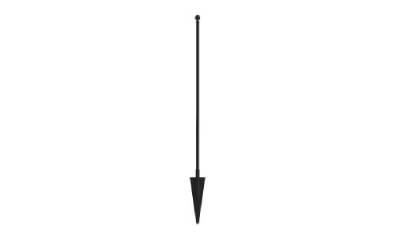28 gauge aluminum wire
Déc . 11, 2024 21:05
Understanding 28 Gauge Aluminum Wire A Versatile Tool for DIY Enthusiasts and Professionals
In the world of crafting, electrical work, and various DIY projects, wire selection is crucial. Among the various types of wire available, 28 gauge aluminum wire stands out for its unique properties and versatile applications. This article will explore the characteristics, uses, advantages, and considerations when working with 28 gauge aluminum wire.
Characteristics of 28 Gauge Aluminum Wire
28 gauge wire refers to the wire’s thickness, with lower gauge numbers indicating thicker wire. At 28 gauge, the wire is relatively thin, measuring approximately 0.32 mm in diameter. Aluminum is known for its lightweight properties, making this gauge particularly useful for applications where weight is a concern.
Moreover, aluminum wire is inherently corrosion-resistant, ensuring longevity even in exposure to moisture and elements. This durability makes 28 gauge aluminum wire a popular choice not just for crafting but also for various electrical projects. Its conductivity, although lower than copper, is adequate for many applications, particularly where weight and flexibility are prioritized.
Applications
One of the most popular usages of 28 gauge aluminum wire is in jewelry making. Artisans and hobbyists appreciate its lightweight nature, allowing for intricate designs without adding significant bulk or weight to the final piece. The wire can be easily manipulated into various shapes and forms, making it ideal for creating wire-wrapped jewelry, beads, and decorative elements.
In addition to jewelry, 28 gauge aluminum wire plays a significant role in electrical projects
. It is often used for low-voltage wiring applications such as LED strips, small electronic devices, and other projects that require minimal current. Its ability to handle necessary electrical loads makes it a reliable option for hobbyists working on projects like model trains, robotics, and DIY electronics.Architectural modeling is another arena where 28 gauge aluminum wire shines. Model builders use it to create structural supports, intricate details, and more, thanks to its malleability and strength. It can be painted, anodized, or left in its natural finish, providing modelers with flexibility in design.
28 gauge aluminum wire

Advantages of 28 Gauge Aluminum Wire
The advantages of 28 gauge aluminum wire are numerous. First and foremost, its lightweight nature makes it easy to transport and handle. Craftsmen can manipulate it into the desired shape without excessive effort, reducing fatigue during long crafting sessions.
Additionally, aluminum is less expensive than copper, presenting a cost-effective option for those on a budget. This affordability does not come at the expense of quality; the wire is durable, resistant to rust, and capable of handling a good amount of stress without breaking.
The versatility of 28 gauge aluminum wire cannot be overstated. Whether you’re a professional artist, a hobbyist, an engineer, or simply someone who enjoys DIY projects, this wire can serve a multitude of purposes, making it a staple in many toolkits.
Considerations When Using 28 Gauge Aluminum Wire
While 28 gauge aluminum wire is incredibly versatile, there are a few considerations to keep in mind. Its thinness means that it is more susceptible to breaking under excessive tension compared to thicker wires. Therefore, it’s crucial to use it in appropriate applications and avoid stretching it beyond its limits.
When working with aluminum wire for electrical applications, always ensure that the wire is rated for the voltage and current demanded by your project to prevent overheating and potential hazards. Additionally, since aluminum can be less conductive than copper, for high-power applications, opting for a thicker wire may be a wiser choice.
In conclusion, 28 gauge aluminum wire is a versatile and practical choice for various applications ranging from jewelry making to electrical projects. Its lightweight, cost-effective properties make it an essential tool for both enthusiasts and professionals alike. By understanding its characteristics, potential uses, and limitations, you can make the most of this handy material in your next project. Whether you're crafting a unique piece of jewelry or wiring a low-voltage circuit, 28 gauge aluminum wire is poised to deliver a reliable solution.









 Unity
Unity Creation
Creation Challenge
Challenge Contribution
Contribution










